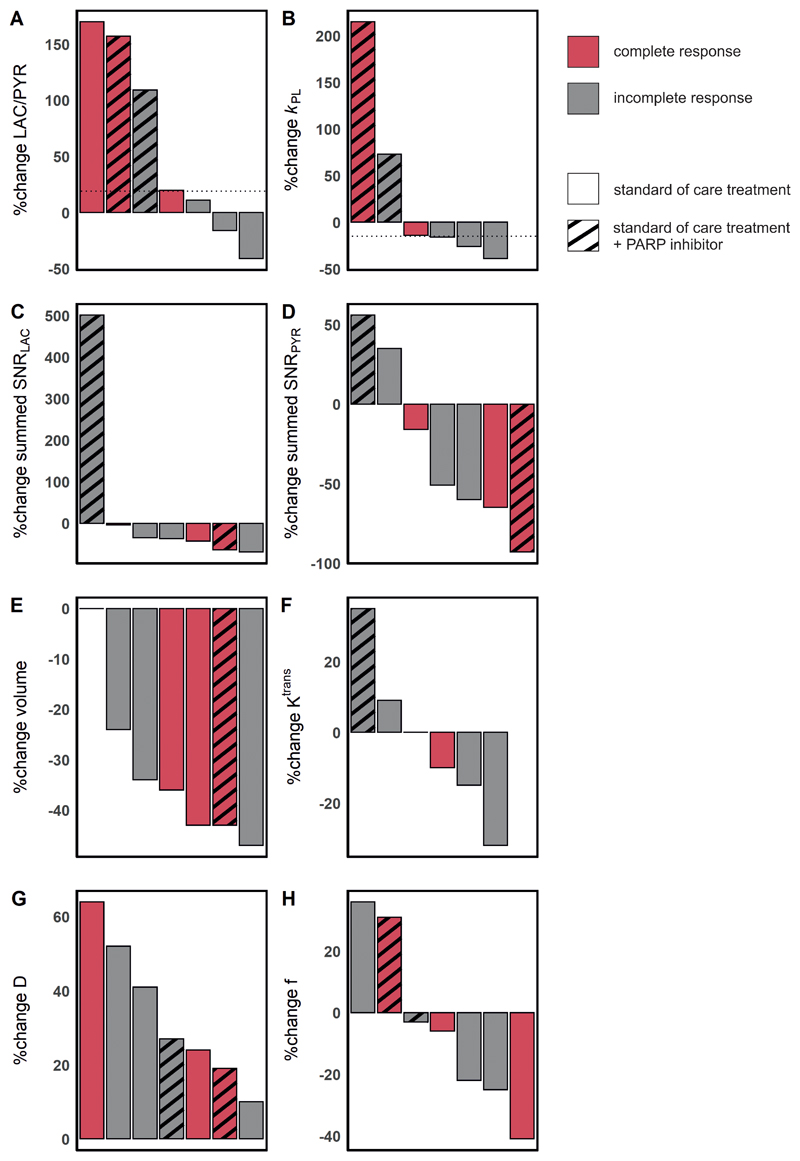Figure 4. Changes in hyperpolarized 13C-MRI and 1H-MRI parameters in seven patients with complete and incomplete responses.
Results are shown for standard-of-care treatment with and without PARP inhibitor treatment. (A) A threshold of +20% change in LAC/PYR distinguished responders from non-responders on standard-of-care therapy (shown with a dashed horizontal line). One non-responder receiving PARP inhibitor treatment also showed an increase in LAC/PYR of ≥20%, which may be explained by NAD+ availability (see main text). (B) A threshold set at a -15% change in k PL (dashed horizontal line) distinguished responders from non-responders on standard-of-care therapy. A patient receiving PARP inhibitor treatment in addition but demonstrating pCR also showed a change in k PL above this threshold. k PL was not available for one patient due to a technical failure. (C-H) There were no thresholds that could be used to distinguish pCR from non-pCR for any of the remaining 1H-MRI or 13C-MRI parameters. Change in K trans was not evaluable for one patient where fat saturation failed at baseline.

